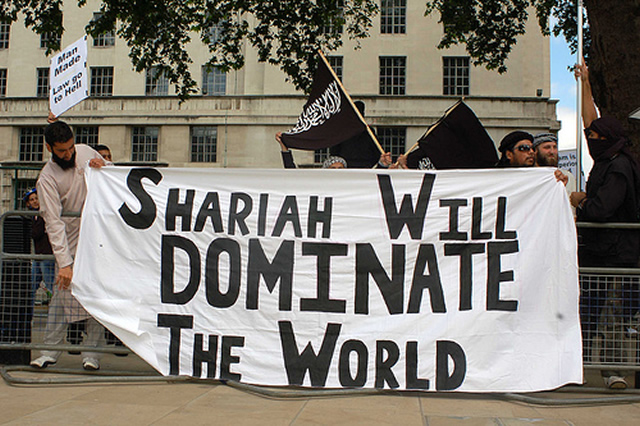Bring religious intolerance to an end

 Opinion Saul Gwakuba Ndlovu
Opinion Saul Gwakuba Ndlovu
One of the most heart-rending human tragedies has been unfolding in the Mediterranean Sea in the past few years, reaching probably its worst phase in recent weeks when literally hundreds of refugees from Libya have been drowning in the middle of the sea on their way to Italy weekly. Most of the refugees are Libyan nationals, some are Somalis and Sudanese, and yet there is also a significant number of Eritreans and Egyptians who were employed in that oil-rich North African state now experiencing internecine military bloodshed, political anarchy, economic ruin, deterioration and social stagnation. The root cause of all this is an attempt by some Libyans to impose by force of arms a national administration based entirely on what Moslems call the “Sharia Law”.
That refers to a radical Islamic interpretation of the Koran some of whose precepts say that the only punishment to be meted out to a thief is to cut off the thief’s arm and then dip the bleeding stump into a pot or drum of boiling oil.
Another Sharia Law instruction is that a couple guilty of adultery or fornication must be stoned to death publicly.
There are two doctrinal Koranic schools, the Sunni and the Shiite. The radical Moslems do not allow their women to appear in the public, least of all bare-faced. Women are not allowed to drive motor vehicles, let alone to ride bicycles. As far as motor cycles are concerned, they do not even talk about them, it is taboo for a Moslem women to be seen astride a motor cycle. She would be stoned to death even by the blind radical Sunnis.
What does not make any sense whatsoever is that nowhere in the Koran do we find anything about motor vehicles, bicycles or motor cycles. Why? Because the Koran was written centuries before those vehicles were invented, and in European countries at that. It is strange that the very same Moslems allow their women to travel by air and by trains, and also by camel, a rather uncomfortable experience when you consider that animal’s queer physical structure. The cause of those obviously most unreasonable Moslemic (Sunnic) instructions is that the doctrine regards children who should never be allowed to decide what is good or bad for themselves.
Prophet Mohammed, the founder of the Islamic religion, died in AD 632, some 1,383 years ago. He could have never predicted that some of his followers would live in a world as technologically advanced as today’s world.
So, it is utterly unrealistic to try to relate the lives of the people of the 21st century to the social and cultural values of the seventh century of the Christian era when Prophet Mohammed dictated the Koran to his scribes.
The people who have perished and those likely to lose their lives in pursuit of safety and relatively comfortable life in Europe are victims of what one may describe as an embarrassing socio-economic irony.
A few decades ago, Libya under Muammar Gaddafi was fighting against imperialist nations the vast majority of which are in Europe. The people of Libya were at that time living in much comfort as every adult received a monthly pension based on that country’s minimum income level needed to secure the necessities of life (poverty datum-line) in addition to free education, the free medical services and free accommodation. The things the people of Libya lacked were freedoms: freedom of worship, freedom of association, freedom of speech and so on and so forth.
All those material comforts and social wants now lie in the forgotten past, they went with the Gaddafi era in 2011.
What obtains now is murderous intolerance where some radical Moslems recently killed 21 Egyptian Coptic Christians in cold blood. They had either been kidnapped from Egypt or had been employed in Libya.
It is important to remember that Mohammed founded Islam some 600 or so years after Jesus Christ and his disciples had evangelised the people of Palestine, and Christianity was duly founded. After Christ’s death on the cross, His teachings were carried across the Red Sea to Egypt, Ifrikiya and Cyrenaica, Nubia and Ethiopia on the African continent.
In Egypt, it was received most enthusiastically by what are called the Copts, native Egyptians who trace their origin to the Hellenistic (Greek) and Roman imperial periods of Alexander the Great and Mark Antony respectively.
When Moslem armies invaded Egypt and Libya some centuries later, they either destroyed or converted Christian temples into mosques. However, some Christian Copts survived the Moslem sword and fire. Descendants of those Copts comprise about 10 percent of Egypt’s population. Those recently murdered in Libya were some of those Coptic Christians. How can the world deal effectively with this obvious threat to international peace and economic progress? The tragic development can be handled at three levels, regional, continental and global.
The Arab nations are members of the Arab League. This is a primarily Moslemic international group whose members have in fact failed to find a common ground from which to confront radical Moslems. That was the case when in 1979, an Islamic revolution toppled and replaced the Shah of Iran with the Ayatollah Ruhollah Khomeini.
In Pakistan, Zulfikar Ali Bhuto was also overthrown and then hanged by a radical Islamic faction led by General Zia ul-Haq who thereafter took over as the President.
So, the Arab League cannot deal with this radical Islamic menace because of doctrinal factionalism. Another factor which appears to be Arabic in its origins, is that Moslems tend to remove politico-cultural leaders with the minimum delay after installing them. This tendency breeds instability and is the opposite of democracy as we understand it. The most recent example of this was the 2013 removal of Egypt’s Morsi, who had been recently democratically elected as that nation’s President. A continental approach would face one major problem in Africa, lack of material resources to mount and sustain a concerted effort to neutralize or eradicate Moslemic radicals such as Boko Haram in Nigeria and Al Shebaab in Somalia.
However, a well planned and effectively launched military campaign by the African Union (AU) can be supported by a number of industrialized nations to protect their respective economic interests. While the AU would be aiming at securing, first and foremost, the sovereignty and security of threatened member-states such as Libya, Nigeria, Somalia, Cameroun, Chad and Niger, industrialised nations such as France, the United States, Britain, Germany, Japan, Italy, Brazil, China and Russia would be aiming at securing sources of some of their raw materials and markets for their products. At global level, the United Nations can be involved but only at the peace-keeping stage. Its Charter has no provision for actual military intervention where there is an on-going war as is the current case in the Ukraine.
But once a ceasefire has been agreed and signed, the UN can come in with its blue-bereted peacekeeping forces.
So, in Africa, the AU has a challenge not only in Nigeria and Somalia, but in Libya as well. We may remember how Libya’s Gaddafi publicly campaigned for the creation of a United States of Africa. The AU could remember and honour him by stabilising his country.
Saul Gwakuba Ndlovu is a retired Bulawayo-based journalist. He can be contacted on cell 0734328136 or through email [email protected]











Comments